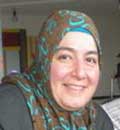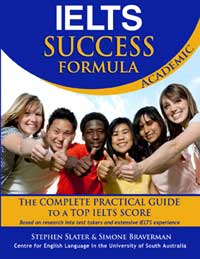IELTS test in India, Azerbaijan, Nepal and the UK – May 2014 (Academic Module)
The topics and questions below were shared by four IELTS test takers whose exams were in four different countries, but the content was the same.
Section 1. Two people were speaking about arrangements for a lecture in the guest room of the hotel.
Questions: form completion.
Section 2. A radio program on Buyer’s Guide.
Questions: table completion, matching ideas to speakers.
Section 3. Two management students were talking with their lecturer about the output of their assignment.
Questions: multiple choice, match answers to paragraphs.
Section 4. A lecture about aboriginal garment designs.
Questions: sentence completion.
Reading test
Passage 1. About butterfly farms in the UK.
Questions: multiple choice, True/False/Not Given, match answers to paragraphs.
Passage 2. About multitasking.
Questions: match a paragraph to a person and his/her ideas, multiple choice.
Passage 3. About green house emissions and desalination.
Questions: True/False/Not Given, filling in blanks (no more than two words), diagram completion (no more than three words).
Writing test
Writing task 1 (a report)
We were given two maps. The first was showing the current road system with accident-prone areas and the second was showing proposed changes in these areas including new roundabouts, traffic lights and so on.
Writing task 2 (an essay)
The famous American actor John Wayne once said “Tomorrow is the most important thing in our life.” However, some people think that the present time is more important. How important is it for individuals and the country to think and do something for the future? What is your own opinion?
Speaking test
Interview
– What is your full name?
– Can I see your ID?
– Where are you from?
– Do you work or study?
– Do you like the place where you live?
– Do you know the neighbours there?
– Is this place suitable for children? Why?
– Are there any parks near your home?
– How often do you visit these parks?
– What do you usually do there?
– When was the last time you went there?
– Do you like open parks or parks with leisure facilities?
– What facilities would you like in the park near you?
– Do you like taking photos with your phone or camera?
– What photos do you like to take?
– What will you do with these photos? Why?
– Would you like to do a course in photography?
Cue Card
Talk about a person that you know, who has an interesting job. Please say
– Who is this person?
– Describe his/her job.
– Why do you think it’s interesting?
Discussion
– What jobs do people prefer to do in your country?
– Do you think young people today find career choice confusing?
– Some companies allow their staff to study, what do you think about it?



 Srinivas L. from India needs Band 7 in Writing to be able to immigrate to Australia (he already got 7’s for his other skills).
Srinivas L. from India needs Band 7 in Writing to be able to immigrate to Australia (he already got 7’s for his other skills). Hazar T. from Syria needs at least Band 7 in Writing and an Overall Band 7.5 by August. She keeps scoring 6.5 in Writing and has no idea why, or how to improve.
Hazar T. from Syria needs at least Band 7 in Writing and an Overall Band 7.5 by August. She keeps scoring 6.5 in Writing and has no idea why, or how to improve.  Mohamad T. from Indonesia is in the military service and needs Band 7 for his Command and Staff course, and also for his Master’s degree.
Mohamad T. from Indonesia is in the military service and needs Band 7 for his Command and Staff course, and also for his Master’s degree.  Erika A. from the Philippines is an International Educated Nurse, currently living in Canada and trying to complete her professional registration in the new country.
Erika A. from the Philippines is an International Educated Nurse, currently living in Canada and trying to complete her professional registration in the new country. Alyona T. from Uzbekistan needs Band 7 in IELTS to do a Master’s degree in the university she has chosen.
Alyona T. from Uzbekistan needs Band 7 in IELTS to do a Master’s degree in the university she has chosen. 